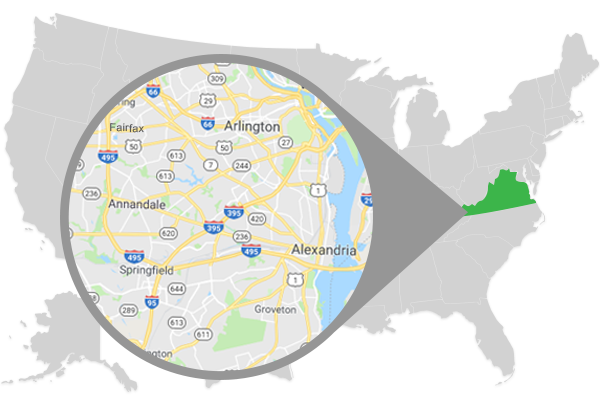Skunk Removal: What Are Skunks?
Skunks are nocturnal animals that are naturally mild-mannered and non-aggressive; they prefer small animals and insects for dinner instead of your garden. They occasionally visit gardens, and if they do, it may be because corn or other plants are close to the ground.
The skunk claims homesteading rights from coast to coast. Distributed across the country are four species of skunks, including the striped skunk (Mephitis mephitis) and the spotted skunk (Spilogale putorius). The characteristic striped skunk lives mostly in sparse forests and fields.
Skunks can be very helpful to have around because they dig up and feed on the larvae of cutworms, Japanese beetles, hornworms, and other crop-destroying insect life. However, skunks are not only partial to insects; they will eat leaves, buds, grasses, grains, garbage, any fruit or berries within reach, and even small game.
Skunk Removal: Why and How Does A Skunk Spray?

Under a skunk’s tail are two pouches equipped with a pair of ducts which, in peacetime, remain hidden, but which quickly expose themselves when danger threatens. Their foul ammunition is a golden-yellow liquid whose active ingredient is the sulfide mercaptan. Each of the two pouches contains enough ammo for six rounds. After the supply is exhausted, a week’s time is required to replenish it. This spray has made skunks creatures feared by nearly all animals, including most of humanity.
A warning comes when their tails, all but the tips, are hoisted. Then, this ultimatum failing to establish peace, the white tip rises and spreads out, and the skunk, snapping into a U-position with snout and rear toward the target, delivers a charge of spray. At this point, it is just too late, and you and your dog probably smell foul.
People usually get sprayed when they are walking through their yards in the dark (if you can’t see a skunk, you can’t run away), or if they disturb a skunk while eating. Those are good reasons to keep skunks out of your yard in the first place—and to always carry a flashlight!
Skunk Removal: How To Identify Skunks in Your Garden
The striped skunk has prominent white stripes running down its back and black fur on the rest of its body. It is the size of a house cat and is the most abundant species of skunk in the United States. Spotted skunks are smaller and have white spots as well as broken white strikes amid their black fur. Skunks have short legs and proportionately large feet with well-developed claws that are good for digging.
Tracks can be helpful in identifying skunks. Skunks are often mistaken for raccoons because they both have five toes. Sometimes, the fifth toe is hard to see in skunk tracks. Their heels usually are not part of the records, and their claw marks are somewhat visible. Skunk droppings also often contain undigested insect parts.
Often, the best way to identify skunks is—unfortunately—by their odor. Hopefully, you don’t have to deal with the skunk spray in your garden, but you’ll know for sure that you have a skunk as soon as they decide to spray.
Skunk Removal: Do I Have Skunk Damage?
If your lawn or flower bed has lots of holes in it, you may have a skunk problem. Skunks dig up the turf looking for grubs. They move around at night and dig in grassy areas, making distinct 3– to 4–inch thick holes. Skunk activity increases in the spring and then lessens naturally on their own.
Skunks sometimes feed on corn, but they only eat the lower ears. If a corn stalk has been toppled over, the culprit is more likely a raccoon. Planting taller varieties of corn can minimize this damage.
Of course, skunk spray is a universal sign of damage. If your dog smells foul, you probably have a skunk.
Skunk Control: Control and Prevent Skunks
Spray a mixture of castor oil and dish-washing detergent diluted in water. Skunks find the smell offensive. Spray the area at night when the skunk is away foraging.
Probably the best skunk repellent is a light. Skunks are nocturnal, and their eyes are very light sensitive. Bright light or a motion sensor flood light will scare skunks away.
Most animals, including skunks, dislike the smell of citrus fruits. Place orange or lemon peels around the yard as a natural skunk repellent.
Predator urine (dogs, coyotes) can be used to repel a skunk. You can purchase this in the garden centers of big box stores. (Note: To make sure the animals are treated humanely, use a responsible source for predator urine to make sure that the brand complies with state and federal regulations.)
Many readers have found success placing ammonia-soaked rags around the yard, however, these need to be often replaced.
If the skunks are in a smaller garden patch, put bars of strong–smelling soap or a room deodorizer near your garden. Ironically, skunks hate strong scents.
If nothing works, there are humane ways for professionals to trap raccoons and skunks and transport them elsewhere. Often, skunk removal by trapping is the only answer, and there just isn’t a lot you can do if it is a skunk. However, be aware that many species of wildlife do not survive when placed in a new territory.
Skunk Removal: What Do You Do If You Get Sprayed?
Oh no! We can all smell a skunk from miles away, but it’s honestly awful to have that smell on you. If you or your pet gets sprayed by a skunk, try a mixture of 1 quart 3 percent hydrogen peroxide, ¼ cup of baking soda, and 1 to 2 teaspoons of liquid dish soap. Shampoo only the areas sprayed by the skunk. Wet the area and work the solution into the skin or fur with your hands (avoid the eyes). Rinse. (This remedy may dry out the skin. If so, use a good-quality crème rinse to replenish moisture once the skunk smell is gone.)
Do you have any special remedies that you use for skunk spray? Send us a message and let us know!




